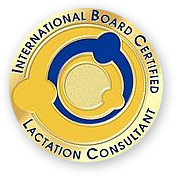What happens in the first 5 days directly impacts how long you nurse your baby.
Your body starts stage two of the lactation process with the delivery of the placenta. After that, every stretch of your nipple cues your body how much milk to make. Most breasts start filling up with milk on day 2 or 3. Some take 5 or more days. If you have breastfed before, you can expect your colostrum to change over to milk within the first two days. Full term babies are born with extra fat that the liver can convert into fuel in case breastfeeding doesn't have an optimal beginning.
If your baby is sleepy or has a problem latching or sucking, your breasts won't get the stimulation they need to make milk in a timely manner. Most medical professionals don't understand how breasts work and describe scary situations of "worst case scenarios." In addition, if your baby is unresponsive, confused and/or clearly hungry, you will be scared and worried because every little problem is magnified under a lens of uncertainty. When you are feeling frightened and uncertain, you may decide breastfeeding is just not worth it.
The fastest way to be comfortable breastfeeding is to have a coach to help you through the first feedings and answer all your questions with accurate information.
"Even though it was hard at the beginning, I am glad I stuck it out. I didn't know breastfeeding is so much more than feeding."
Before you get discouraged, before you give that first bottle, before you have a big problem, before you waste a lot of time searching online, read breastfeeding books, pump, use bottles, nipples shields and shells, call Donna at (845) 750-4402.
Your baby already knows how to breastfeed. What probably needs to happen is that YOU learn how to let your baby breastfeed.
Breastfeeding is intuitive and natural, but often it's not easy. If you are nursing and it hurts, or you are unsure if you have enough milk, it can be one or several things together, that need adjusting. There are literally hundreds of things that can contribute to painful, problematic or ineffective nursing.
What is breastfeeding like? Breastfeeding is not just about feeding your baby. It is a way to mother that nurtures you, too. While some mothers find it amazing, intuitive, easy, natural and satisfying from day 1, most women struggle a little (or a lot) in the beginning.
Here are common problems during The First 5 Days:
- Improper Latch - It is painful and can lead to inadequate feeding, low weight gain, insufficient or over-abundant milk, early weaning, and sore or cracked nipples. But it's almost always totally preventable.
- Engorgement - It is overwhelming because it comes on suddenly and it can really hurt! It can lead to mastitis and other complications. But it's almost always totally preventable.
- Dehydration, Weight Loss, and Jaundice These can happen if your baby is not breastfeeding well. This is totally preventable if you follow two simple techniques.
- Forced Formula Supplementation - In a crisis, medical professionals act quickly in ways that often undermine breastfeeding and your confidence. This is totally preventable if someone educates them on a technique that makes more milk and increases your baby's weight quickly. (And improves bonding with your baby!)
Instead of struggling, a home visit lets you sit in your own home with someone who listens, observes, gives encouragement, coaches you and answers all your questions. You naturally feel more confident. Confident you have enough milk. Confident you know how to feed your baby in an easy, relaxing way. And confident you are on the right track.
"I had no idea what I was doing. I was tired and confused from the birth. I had so many questions!"
It's easier to address a breastfeeding problem on Day 1, 2 or 5, than on Day 7 because you and your baby haven't learned any bad habits. And more importantly, your baby still has reserves from pregnancy while you aren't totally frustrated and overwhelmed.
You may already be working with a Midwife or Doula and that is a great place to start. All Midwives and Doulas understand that there is an art and a science to breastfeeding. They understand the value of a home visit from a Lactation Consultant. They will be happy that you have brought in someone with lots of breastfeeding knowledge and experience.
To schedule an appointment: call or text me at (845) 750-4402.
Click to send me an email. I will reply to it within 24 hours.



